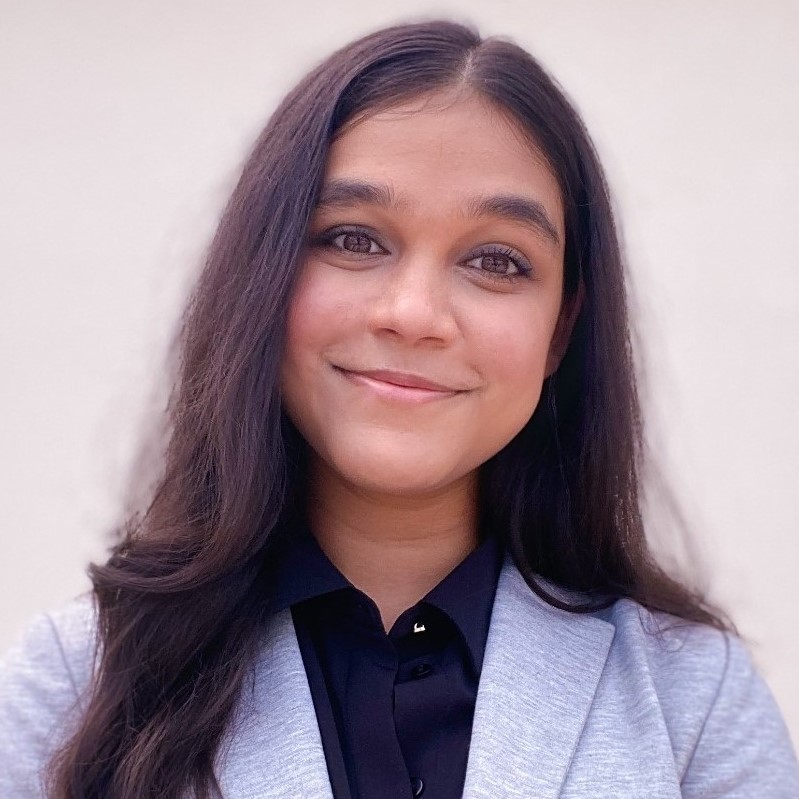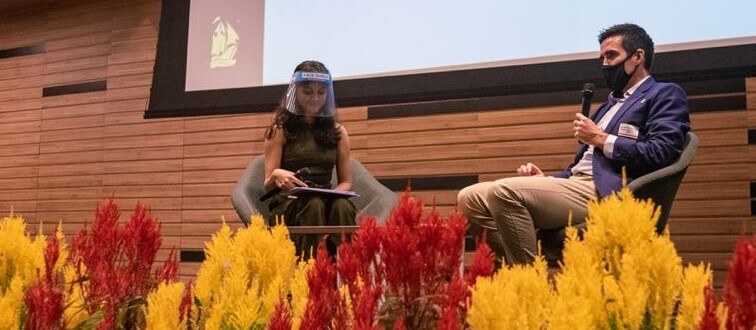From International Baccalaureate to SMU: My Journey Towards Global Citizenship
Palak Agarwal’s International Baccalaureate (IB) education equipped her with essential skills for life-long learning, greatly aiding her studies at SMU. At SMU, she embraced various opportunities to hone soft skills such as teamwork and problem solving, as well as cross-cultural understanding through a cross-borders module. These experiences have enriched her academic journey and nurtured her development as a global citizen.
To stand out in the 21st century, one needs to go beyond being a knowledge worker and embrace the role of an agile leader with a global mindset.
At SMU, students build their international perspectives and gain real-world knowledge to thrive in today’s globalised economy. All students are guaranteed a global exposure experience to develop essential competencies such as cross-cultural skills, critical thinking and a respect for diversity that are prerequisites for excelling in an era of globalisation.

The University strives to help students reap the benefits of global exposure and experiential learning through real-world experiences and its internationalisation approach. Before enrolling in SMU's Bachelor of Science in Economics programme, Palak Agarwal received her IB diploma from the Global Indian International School, who has moved from the IBDP into university. The double major in Economics and Finance shares more about her journey towards becoming a global citizen at SMU.
Q:
Hi Palak, can you first share with us – what does being a global citizen mean to you? Is being global-ready critical in today’s world?
A:
Being a global citizen is about having the courage to broaden your understanding of the world. Facilitated by curiosity and cross-cultural understanding, a global citizen embraces the unknown and equips themselves with an arsenal of knowledge and skills that transcends geographical and communal boundaries.
As globalisation permeates our lives, I think that being global-ready is an essential skill because it provides a sense of preparedness and proactivity that sets us apart. Moreover, enhancing one’s global literacy optimises our inter-cultural interactions and business decision-making ability especially in cross-border partnerships.
Q:
In what ways has SMU shaped you into a global citizen?
A:
With a holistic curriculum that cultivates lateral thinking and interdisciplinary learning, I’ve received multiple opportunities for exposure throughout my four-year degree. The teaching pedagogy encourages interactive learning and application, and each module is structured to introduce every aspect of the discipline. For example, exams and quizzes test the knowledge of internationalised course materials; group projects among a diverse community of peers instill teamwork and cultural understanding; and individual reflections and participation reiterate an attitude of embracing continuous learning.

Q:
Tell us a bit more about the kind of global exposure experiences you have had in SMU.
A:
Global exposure is an integral aspect of every SMU student’s experience. I chose to enroll in a cross-borders module with the opportunity to work alongside students from around the world on a six-week project. Navigating time differences, working styles and cultural nuances simulated a real-world business project setting, which empowered me with the skills and understanding necessary to excel in such an environment in the future.
Q:
How do you think the IB programme had helped you stand out when you applied for university?
A:
My time within the IB programme was a crash course in life-long learning. Beyond simply learning about a subject matter, I was introduced to ways to frame my thoughts and opinions, both inside and outside the classroom, and how to satiate my interdisciplinary curiosity. Moreover, my biggest takeaway was learning how to learn. The programme prepared me for the trend of constant up-skilling and life-long learning prevalent in today’s workforce and facilitated my candidacy for higher education.
Q:
How do you think the skills gleaned during your IB experience have been reinforced at SMU?
A:
While the IB provides opportunities to acquire soft skills such as teamwork and problem solving, SMU integrated the ability to develop and hone such skills into the curriculum and student life. Within and beyond academia, the university allows us to gain exposure to real-world projects, networking and teams, and design thinking.
Q:
What are some tips you have for IB students who are now applying to university?
A:
IB students study in a uniquely holistic system that transforms them into well-rounded individuals. As Singapore shifts away from a ‘hard skills-first’ outlook, universities and employers increasingly seek balanced candidates for their institutions. IB students should leverage their future-ready competencies beyond academia to stand out in their university applications. This includes soft skills, out-of-the-box thinking and a broad network of communities that set one apart.
Ready for an undergraduate experience that empowers you to create meaningful impact? Find out how you can join SMU here.




